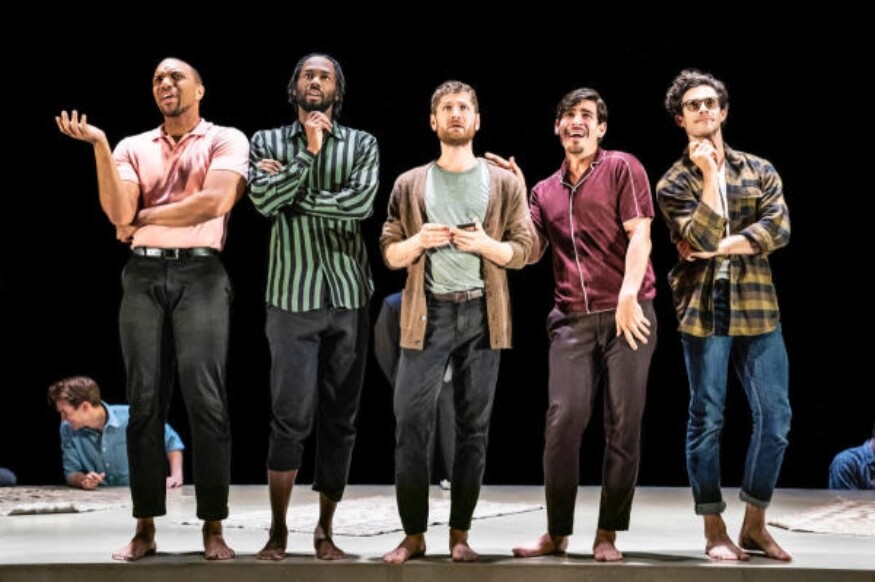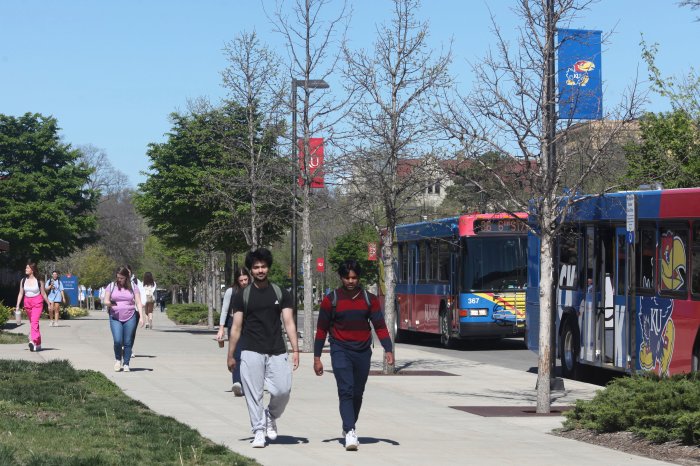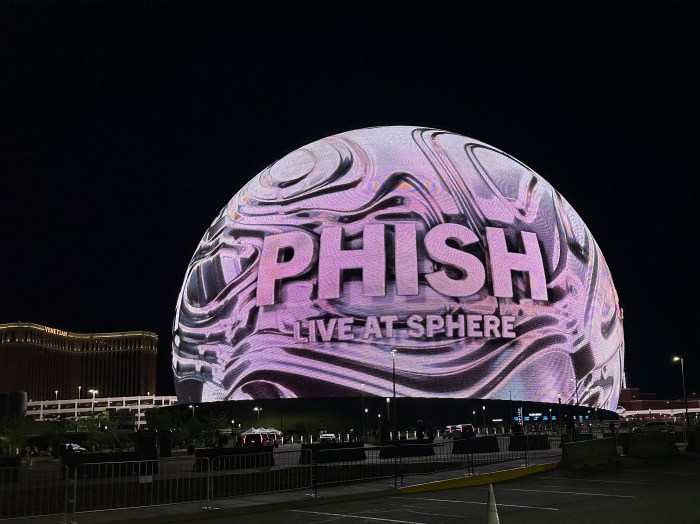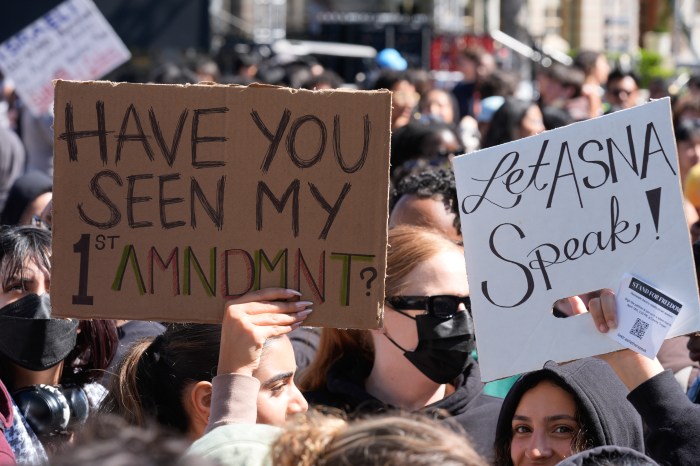One may as well begin with the facts: “The Inheritance” is now playing on Broadway, and it’s the most beautiful, tender production this reviewer has ever seen onstage. It tells the story of being young, gay and male in New York while asking itself how to do so. It’s performed in two parts, experienced over multiple nights or one marathon of a day. It’s loosely based on E. M. Forster’s novel “Howards End.” Go online and purchase tickets as soon as possible.
The show, written by Matthew Lopez and directed by Stephen Daldry, opens gradually, as barefoot young men seep onstage one at a time before the theatre lights dim. They spread cushions and knit themselves comfortably among each other on a raked stage, empty save for a giant raised platform. Each man holds a pen and paper or a laptop, trying to write a story, his story. And then, enter E. M. Forster! The men (weirdly unsurprised to see the long-dead gay British writer show up at what appears to be their writer’s group) implore Forster to help them, because, as one man explains, he needs to tell his story “to understand it. To understand myself.” And so, our seven-hour journey begins.
The story unfolds as Forster and members of the ensemble cast each other in it. It begins in 2015 with Toby and Eric, who have been together for seven years, residing in a rent-controlled Upper West Side apartment that Eric has inherited (get it?). We see immediately that Eric lives to care for Toby and Toby lives by being cared for. They live a life a New York audience member might recognize: art openings at the Whitney, afternoons at The Strand, brunch. Enter Adam: a young, rich and aspiring actor. The three men fall into each other easily, forming a fragile friendship based on attraction and attention. While Toby and Adam are opening a play in Chicago, Eric befriends Walter, an older gay man and long-time romantic partner of well-known billionaire Henry Wilcox. Walter’s story is where the show begins to take off emotionally, as he fell in love and came of age during New York’s AIDS crisis. After watching contemporary gay men protect each other, hearing about circumstances that prevented their predecessors from being able to do the same is all the more heartbreaking.
Wild-eyed social climber Toby is played by Andrew Burnap, who played the role in the London production (all five lead actors originated their roles in the West End). Watching him staunchly reject vulnerability while so desperately craving it is affecting and devastating. Kyle Soller — who won an Olivier Award for his West End performance — is stunning as Eric, a man so full of love it seeps from his very pores. Soller’s performance will find a disarming route to your heart and remain there for a very long time. I felt lucky to witness it. Samuel H. Levine is effective if slightly wooden playing two outsiders looking in: the manipulative yet naive Adam and his sex worker look-a-like Leo. The remaining ensemble members, who spend a majority of the show onstage watching with us, are fantastic, providing much of the show’s comic relief while imbuing their own characters with heart and depth. John Benjamin Hickey and Paul Hilton round out the main cast as Henry Wilcox and Walter/E. M. Forster, respectively. They are both excellent and, unlike the younger men, wear shoes!
“Howards End” begins with the epigraph “only connect,” and “The Inheritance” forces gay men to reckon with the consequences of connecting. As one character asks of the vulnerable manner through which HIV is contracted, “how could an experience that transcendent yield consequences so terrifying?” Even though the play begins with men building their own narratives, we see through the course of the show that sometimes there’s no way to avoid the path that faces you.
People trying to connect are bound to eventually make contact, and the way people physically touch in this show is remarkable. Each moment of contact is rendered with exhilarating love and intent — the tenderness with which Dylan Frederick and Carson McCalley grasp for and caress each other as younger versions of Walter and Henry is more intimate and delicate than anything I’ve ever seen on stage. Stephen Daldry’s direction soars: seeing the actors relate to each other — their kinesthetic response electric — makes the show seamless and astonishing.
The actors connect with us as well: the raised platform (scenic design by Bob Crowley) becomes a table at which the performers sit, watching the action unfold. We are the fourth bench at this table, and involved we are: many audience members lived through the AIDS crisis and knew someone who was lost. For those of us who didn’t, the show gives us a vivid sense of the unimaginable.
The problem with catharsis is, once you’re catharsis-ed (that can be a word, right?), you’re cleansed. You don’t really need another entire show to do it all again. And yet, there’s Part Two. After experiencing Part One only hours before with such a satisfying, beautiful ending that demonstrates how gay men inherit (get it?) such immense history, life goes on. In Part Two, we see our characters cause each other pain as they try more and more desperately to connect but grasp for that connection in harmful, self-destructive ways. The problem is, by the end of Part Two, there are too many main characters for us to have a moment of equally meaningful reckoning for each of them: wrapping up every storyline begins to feel like a chore. It feels like Lopez anticipated our fatigue, but instead of softening his approach (or, gasp, shortening the play), the writing in Part Two becomes, at times, more heavy-handed. It’s unfortunate when this happens, as his writing is dexterous and delicate for the majority of his seven-hour masterpiece.
Despite some shortcomings and inevitable audience fatigue, there are immensely beautiful moments in Part Two. Consider giving yourself a day to recover from Part One before jumping into Part Two, which may give you the energy to cry for each character as he teeters to the edge and either falls off it or finds safety in community.
If you want to be emotionally held for many hours in a room full of tender, gentle love, please see “The Inheritance.” Every person who has the opportunity to sit in the Ethel Barrymore Theatre during its run is lucky.
Head here to grab tickets for “The Inheritance”.



















